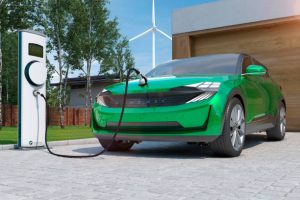Introduction
The concept of smart cars is changing the manner in which we drive and communicate with the cars. Even advanced devices such as sensors, AI systems are making driving safer, more efficient and enjoyable.
Autonomous and connected vehicles are not a mere notion of the future but are actually coming to be a reality. These technologies would assist drivers and manufacturers to adopt the mobility of the future with hope.
What Is Smart Car Technology?

Smart car technology involves automobile systems that can perceive, communicate and react smartly. It features such aspects as adaptive cruise control, collision detection, and real-time navigation updates.
These vehicles are able to communicate with other cars and roads, making the traffic more efficient and safer. Driving is becoming smarter with the assistance of AI and connectivity minimizing human mistakes and improving the experience as a whole.
Key Components of Smart Cars
Smart cars depend on sensors, cameras and radar to check on their surroundings. This information is analyzed by artificial intelligence, and real-time decision-making is made possible.
Connection capabilities enable automobiles to network with networks, other cars and smart city systems. A combination of these elements makes driving a smooth experience. The technology of smart cars makes cars not only reactive but also predictive in their activities.
Autonomous Driving Levels
Self driving comes in various degrees including a basic sort of driver assistance and full self-driving. Level 1 provides easy assistance and Level 5 is total freedom of the human touch. The point of this evolution is smart car technology.
Vehicles can move safely in complex environments with the help of sensors, artificial intelligence algorithms, and advanced mapping technologies. With the technological advancement, more autonomous cars on the high-level will appear on the roads all over the world.
Connectivity in Smart Cars
One of the most important elements of smart cars is connectivity. Cars can now communicate with the internet, other cars as well as infrastructure. This facilitates the real-time traffic information, remote diagnostics and infotainment services.
V2X (vehicle-to-everything) communication gives vehicles the opportunity to communicate with other vehicles, pedestrians and traffic lights. Greater connectivity will minimize accidents, enhance navigation and provide a more efficient driving experience.
Smart Cars Innovations of Safety

The technology of smart cars increases safety by offering predictive mechanisms and automatic interventions. Through collision detection, lane-keeping assist and emergency braking, accidents will be prevented before they take place.
Driver monitoring systems are used to monitor alertness and AI can predict dangerous scenario. These technologies have a great impact in minimizing human error. As the number of smarter cars in the road increases, there will be less traffic death and the roads will be secure.
Environmental Effect of Smart Cars
The smart car technology is a contributor towards sustainability. Smart driving and good navigation saves fuel and emission. Smart cars which are powered by electricity also reduce the use of fossil fuels.
Connectivity maximizes traffic and reduces periods of idleness and pollution. This will see such vehicles being part of urban mobility that is more eco-friendly as cities adopt smart infrastructure. Smart cars are not only safer, but also eco-friendly solutions to the future.
Issues that Smart Car Technology has to deal with
Although smart car technology has advantages, it has difficulties. The development cost is high, there is a risk of cybersecurity, and governmental regulations slow its pace. There is the issue of privacy of the data, whereby connected cars produce extensive data about an individual.
Moreover, autonomous systems require time before people trust them. The manufacturers and policymakers have to deal with these problems to have safe and widespread adoption of smart vehicles.
Future Trends in Smart Cars

The smart car technology holds a bright future. Cars will be even smarter with integration with AIs, machine learning, and IoT. There will be more self-driving cars, smarter driving, personalized driving experiences.
Cars will be considered continuations of online lives, and they will be convenient and efficient. With the development of technologies, cars of the future will transform the transportation industry, and the roads will be clean, safer, and more interconnected than ever before.
Conclusion
The revolution in the automotive industry is the smart car technology. Connected and autonomous vehicles will be the future of mobility, as far as improved safety is concerned, but also in terms of environmental advantages.
With the ever-evolving innovations, driving will be smarter, efficient, and fun. Adopting such technologies in the present world will provide the seamless road to the future where smart cars will be running in the streets to improve lives and transform transportation in the city.












Add Comment